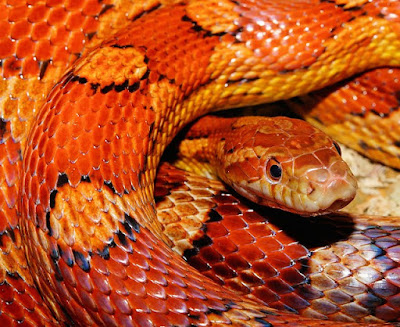Unless you are fond of snakes as pets, you probably don’t want them in your garden. Never mind that snakes have a beneficial side, i.e. eating vermin and similar pests. Venomous reptiles certainly pose a danger. Even non-poisonous species can give you a fright when encountered unexpectedly.
Here are a few things you can do to discourage them from taking up residence:
Install a “snake-proof” fence. When my father-in-law (of saintéd memory) would sit on my front porch and come up with more things for me to do, installing a snake-proof fence around my property was one of them. He was thinking of his daughter’s and grandchildren’s safety, of course, but I thought it was a little ridiculous. I had over 3,600’ of property line. I didn’t do it then, nor would I now. But a much smaller area – like a kitchen garden – would be considerably easier to enclose. Here’s how:
- Select galvanized or aluminum hardware cloth with small mesh.
- Fencing should be about 48 inches wide. That will allow you to bury about 10 inches or more in the ground and leave the rest above-ground.
- Slant the fencing outward to discourage determined critters from climbing over.
Remove hiding places from the area. Stacked wood, posts, overturned pots and such need to go. I admit my kitchen garden is not so tidy. I carefully turn upside-down pots with a long stick if they’ve been there for a while.
Discourage rodents.
If serpents aren’t hiding under things, they’re searching for
food. Rats and mice are on their menu. If you have outdoor pets, keep
their kibbles stashed away until feeding time. Rodents just LOVE pet
food. I once found a rat stash of dry cat food under the hood of my old Chevy Caprice! Well, rodents entice snakes. We won't let that happen again.
Keep weeds down. Doing so will discourage rodents and their reptilian predators.
Consider gardening in tall, raised beds. Many styles are on the market. Some range from 12” to 32” or more in height. The metal ones are much more difficult for snakes to enter for lounging among your bush beans.
Apply a protective barrier of snake repellent. Moth balls and vinegar are reputed to keep them at bay, or you can purchase commercially prepared repellents from your local lawn and garden store. Bear in mind that all snake repellents don’t repel all snakes, but many venomous snakes are most likely to be repulsed. Snake repellents will need to be re-applied.
To allay some of your fears, I suggest learning how to identify snakes native to your region. In the event that you come across a snake in the grass, you’ll know better how to react appropriately.
Return to GoGardenNow.com.






No comments:
Post a Comment